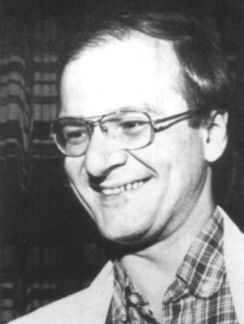 |
Claude Vivier (14 April
1948 - 7 March 1983) was a Canadian composer.
Born to unknown parents in Montreal, Vivier was adopted at the age of
three by a poor French-Canadian family. From the age of thirteen he
attended boarding schools run by the Marist Brothers, a religious order
that prepared young boys for a vocation in the priesthood. The young
Vivier's religious inclinations were supplanted by a love of modern
poetry and music. Upon being asked to leave the novitiate at the age of
eighteen, he enrolled the following year at the Conservatoire de Musique
de Montréal, where his main teacher was the composer Gilles Tremblay.
His earliest works date from this period.
In 1971 he began a period of three years' study in Europe, first at the
Institute for Sonology in Utrecht, and then in Cologne with Karlheinz
Stockhausen. Vivier learned much from Stockhausen, even though his later
works bear little audible resemblance. In 1974 he returned to Montreal
and began to establish his reputation. Early works like Lettura di Dante
were performed with some success at the concerts of the SMCQ. In autumn
1976 he undertook a long trip to the East, notably to Japan and Bali;
the music he encountered there made a profound effect on him. Subsequent
compositions like Pulau Dewata show the impact quite audibly; but in
later works the influence has been digested and goes much deeper.
Vivier's opera Kopernikus, to his own libretto, was premièred on 8 May
1980, at the Théâtre du Monument National in Montreal. By that time he
had begun to compose in a somewhat different manner, influenced by the
techniques of French spectral music, and was notably influenced by
Gérard Grisey and Tristan Murail. The first of the works in this new
manner, Lonely Child (1980) for soprano and orchestra, has become his
best-known work. This and other late scores of Vivier, including
Prologue pour un Marco Polo and Wo bist du Licht! were intended for
inclusion in an unfinished "opéra fleuve" entitled Rêves d'un Marco
Polo.
In June 1982, with the help of a Canada Council grant, Vivier left
Montreal for Paris, where he began work on an opera based on the death
of Tchaikovsky. In March the following year he was stabbed to death by a
young Parisian man who may have been a prospective lover and who was
later caught and sentenced. His last work was the unfinished Glaubst du
an die Unsterblichkeit der Seele, which contains a disturbing
premonition of his untimely death.
|